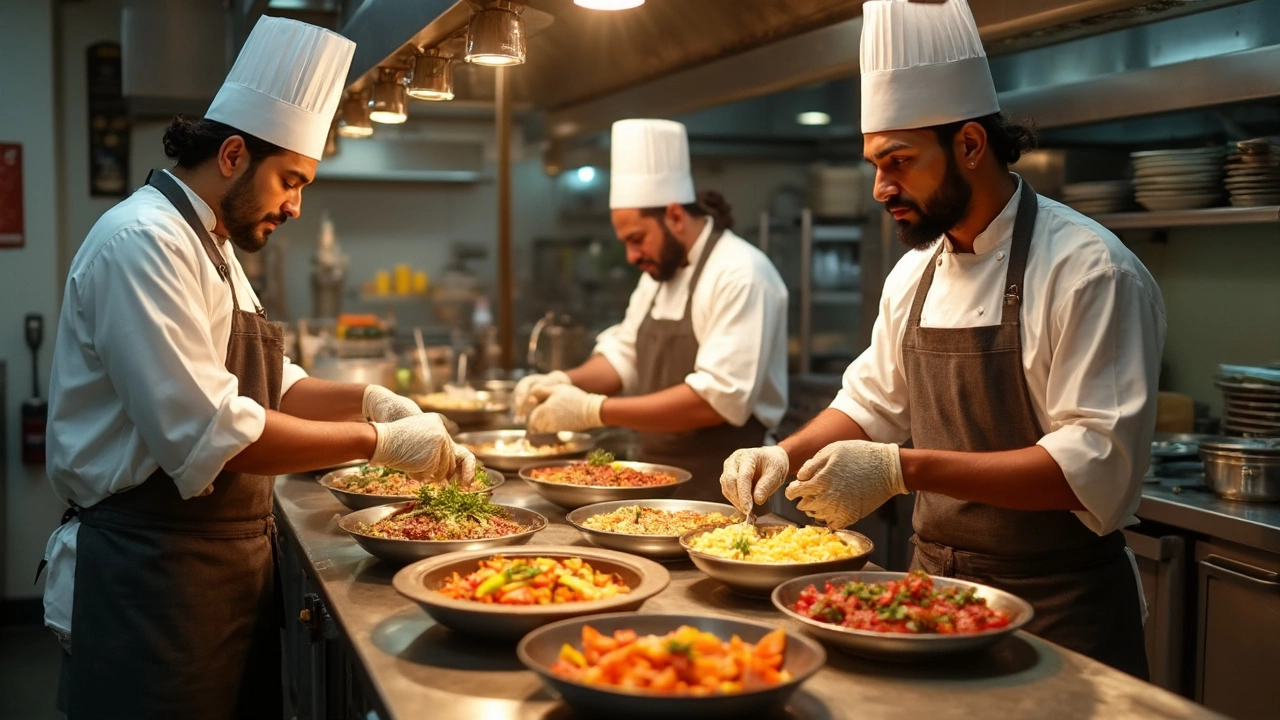Kitchen Equipment Essentials: What Every Home Chef Needs
Ever walked into a kitchen and felt overwhelmed by the sheer number of gadgets? You’re not alone. The truth is, you don’t need a mountain of gizmos to cook great meals – just the right ones. Below, we break down the must‑have equipment, how to pick the best versions, and simple ways to keep them working longer.
Must‑Have Appliances for a Modern Kitchen
Appliances are the backbone of any kitchen. A good microwave saves time, but don’t stop there. A convection oven gives you even heat for baking and roasting, while a stand‑mixing bowl handles dough, batter, and everything in between. If space is tight, a multi‑cookers like the Instant Pot combine pressure cooking, slow cooking, and sauté in one unit – perfect for busy families.
Don’t forget the refrigerator. Look for a model with a reliable temperature range and adjustable shelves. Energy‑star ratings can cut electricity bills, and a built‑in water filter adds convenience.
For those who love fresh drinks, a blender or juicer is a game‑changer. A high‑speed blender crushes ice for smoothies, while a slow juicer extracts more nutrients from fruits and veggies.
Choosing the Right Cookware and Utensils
When it comes to pots and pans, material matters. Stainless steel is durable and great for searing, but it doesn’t conduct heat as evenly as hard‑anodized aluminum. For everyday frying, a non‑stick skillet saves on oil and cleanup. If you love sauces, a heavy‑bottomed saucepan prevents scorching.
Utensils should feel comfortable in your hand. Silicone spatulas are heat‑resistant and won’t scratch cookware. Wooden spoons are sturdy and ideal for stirring soups. Keep a set of sturdy tongs – they’re perfect for flipping meat and tossing salads.
Storage solutions keep the kitchen tidy and make you reach for the right tool faster. Use stackable bins for pantry items, magnetic strips for knives, and drawer dividers for utensils. A well‑organized kitchen cuts down prep time and reduces frustration.
Maintenance is easier than you think. Wash most cookware by hand to preserve non‑stick coatings. Cast iron needs a light coat of oil after each use to prevent rust. Regularly descale your kettle and clean the refrigerator coils for better efficiency.
Finally, set a budget and prioritize. If you’re starting from scratch, buy a solid skillet, a saucepan, and a versatile appliance first. Upgrade as you discover what you cook most often. Remember, the best kitchen equipment isn’t the most expensive – it’s the gear that fits your style, lasts long, and makes cooking enjoyable.

Do Restaurants Use Food Processors?
Restaurants often rely on food processors to speed up food preparation and ensure consistency in dishes. From chopping vegetables to making sauces, these machines are essential in most commercial kitchens. This article explores how food processors are used in restaurants, highlighting their benefits and offering tips for selecting the right model for a kitchen. Discover the surprising impact they have on culinary efficiency.
